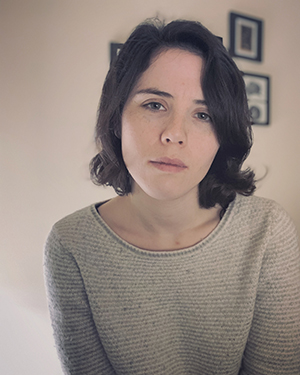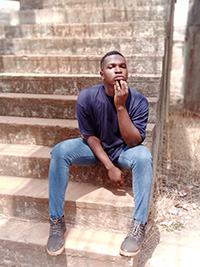Prophecy Against Uncertainty: Ugonna-Ora Owoh in Conversation with Julia Brush

Julia Brush, whose poem "Oracular" appears in The Malahat Review's winter 2019 issue #209, discusses what she wants from a poem, how we bring meaning to our experiences, and the power of the mythic and the sacred in her Q&A with Malahat Review volunteer and past contributor Ugonna-Ora Owoh. Read "Oracular" here.
Julia Brush is a current PhD student and writing instructor in English at the University of Connecticut. She studies contemporary transnational poetry, queer theory, and translation.
Her audio poetry appears in the first volume of Directed Dreaming. Her poetry appears in 8 Poems, 2 Bridges Review, Nightjar Review and elsewhere.
“Oracular” seems to be a kind of love poem. Can you tell me what inspired it?
It was my first year of grad school and I was feeling both a longing for the past and the intense adrenaline of change that settles into something else. My longtime girlfriend and I were living apart for the first time in our relationship, and I didn’t know when that would change or what would come next. I remember standing in a new kitchen, thinking about how at one point, when I was younger, this transition would have filled me with such fear and reflexive ill-will. I realized that I wasn’t in the same space I once was, and that I had genuine hope for the future, somewhat despite myself. I think that’s what being in love does—it brings a future into focus you couldn’t imagine.
There’s an obvious theme of prophecy and mythology throughout. Did you come up with the theme first, or did it surface later (like the poem claimed its space)? Do you often incorporate these themes into your writing?
The first words that came to me in my kitchen that day were, “I was such a cynic when I met you/Now they call me Delphic.” I have always been attracted to the power of the mythic and the sacred as a way for language to do something impossible. For me, my poetry originates from that space where you can suspend disbelief long enough to be entranced within the world. I often become overwhelmed by the mundane and the unstable nature of the future, so poetry mostly becomes the place where prophecy can achieve something against every other uncertainty.
The lines “I always spoke in riddles, but with her / another tongue,” raise a question of language’s capacity to render experience. Here, the speaker seems to be able to communicate on a different level with “her.” Could you say a little bit more about your understanding of language, experience, and love?
I am not a good communicator on any basic level, and for most of my formative years as a poet I would write these cryptic verses that felt so emotionally weighted and yet I knew they were not attempting to engage anyone else. In the same way love opens a future, I think it also moves us to test our boundaries and the boundaries of our language to state how we bring meaning to our experiences. In meeting new people, it became clear how my language had become a shared one that had not only an origin in falling in love but a purpose in sustaining that love.
Which poets do you enjoy reading the most and why do you like them?
In my scholarship I focus on LGBTQ+ transnational poets, particularly in thinking about the intimacies of crisis and invocations of space and desire. When I think about my own poetry and translation projects, I come back again to Donika Kelly’s work as a master of embodying and disembodying the self through personal mythology. I have great admiration for Anne Carson’s translations and her craft of making poetry material and physical. When I need to remember what a few lines can do, I turn to Rumi. For me, I want the poet to ask me if I see what they see.
Do you have any upcoming projects you want us to know about?
I am currently working on a chapbook-length work focusing on recurring dreams or memories and the ways I envision real and imaginary spaces that I hope to be able to share soon. I am currently working on a few creative translation projects alongside my dissertation, but I am most excited about poetry to come and entering more conversations about what poetry can do.

Ugonna-Ora Owoh
* * * * * * * *









